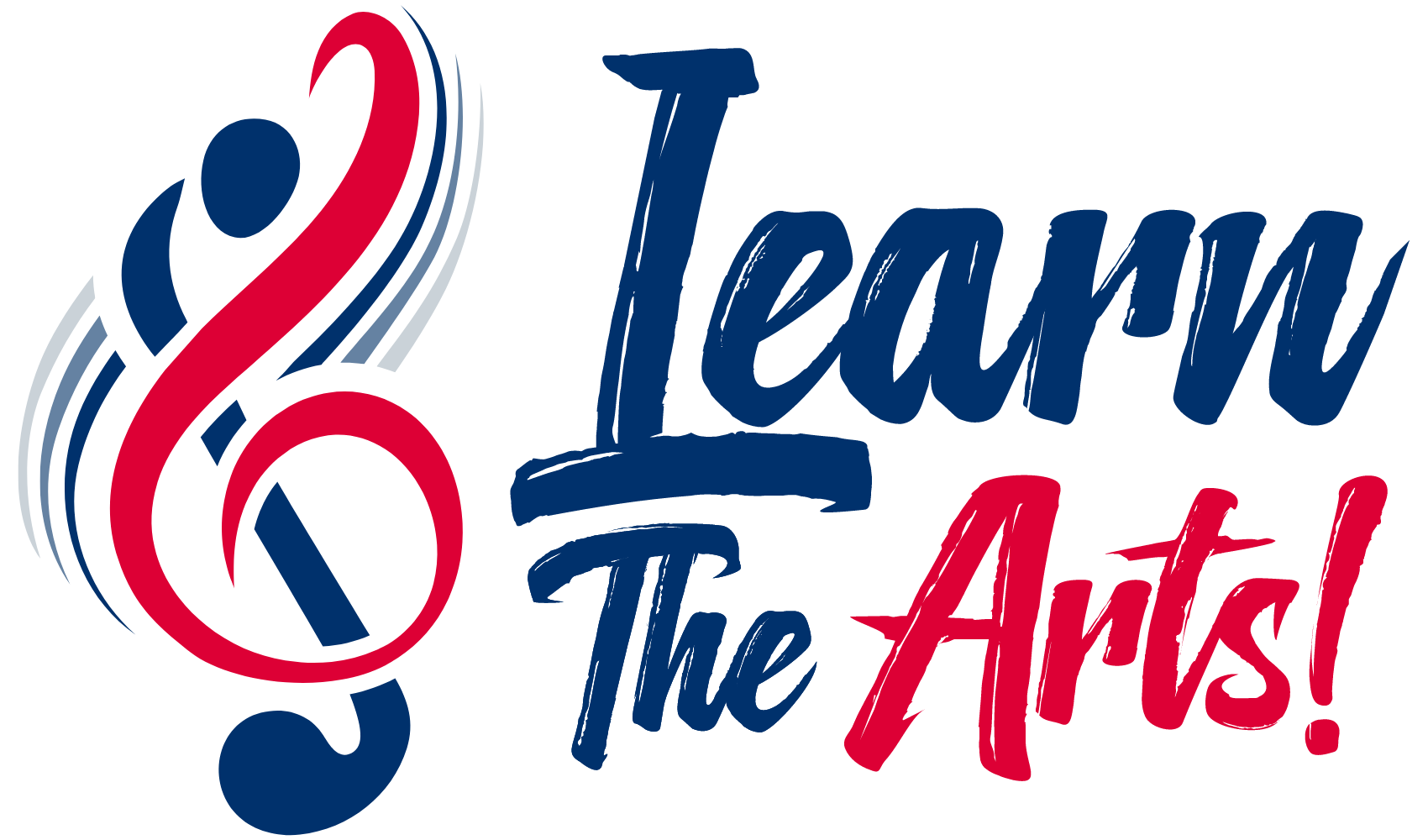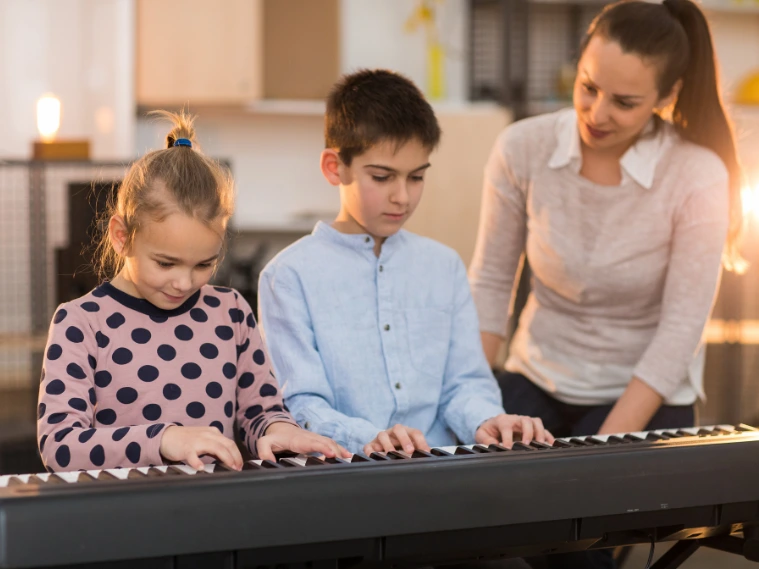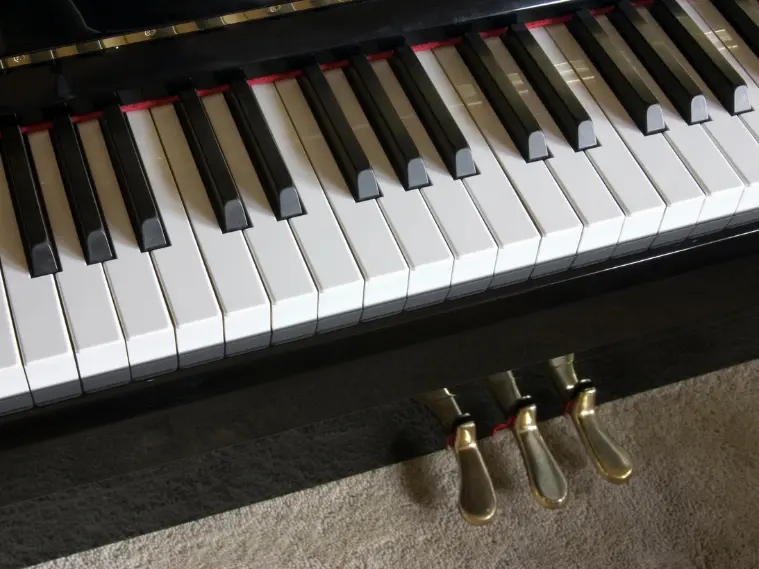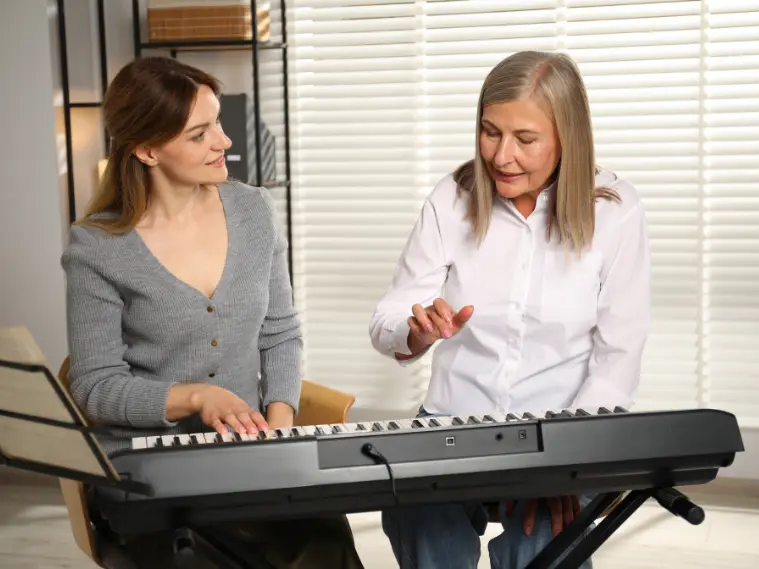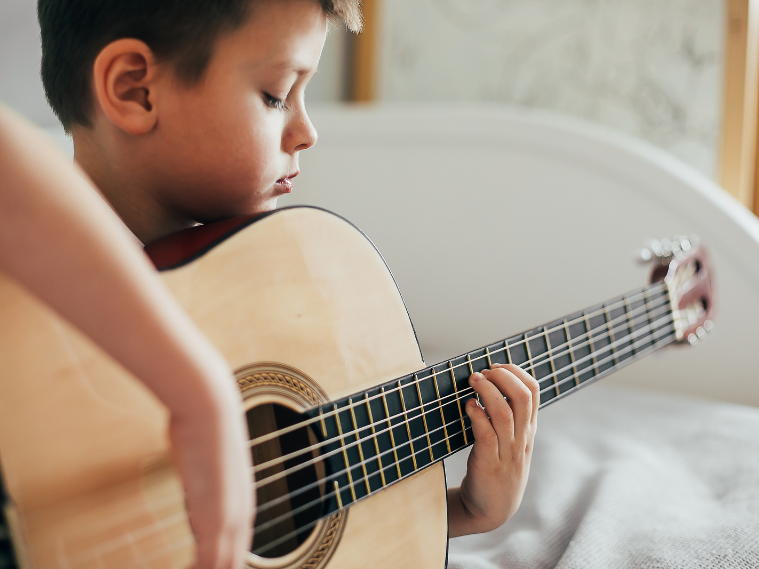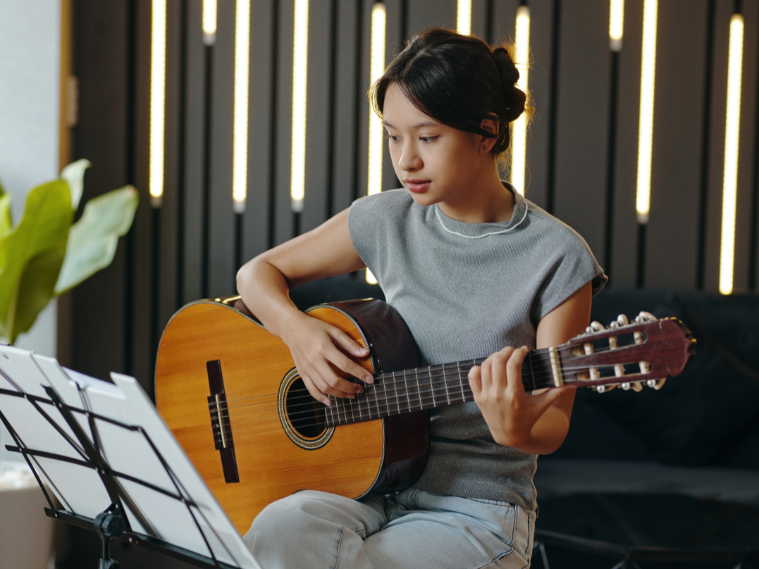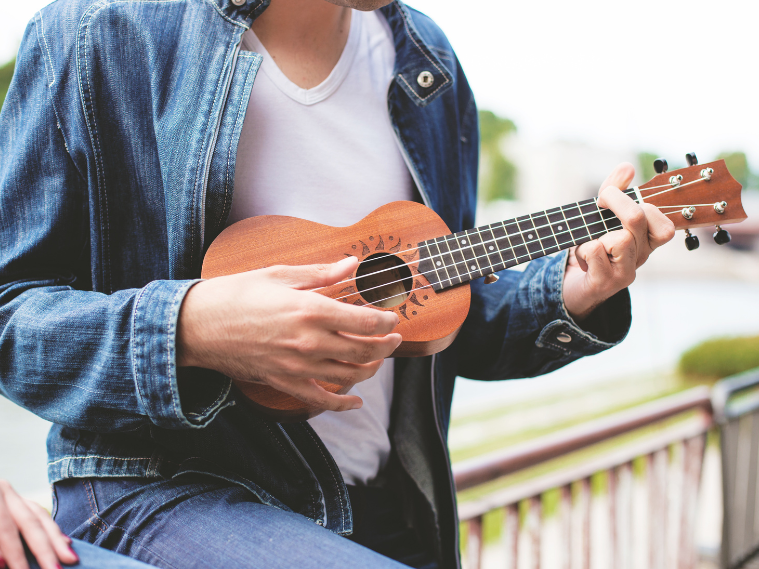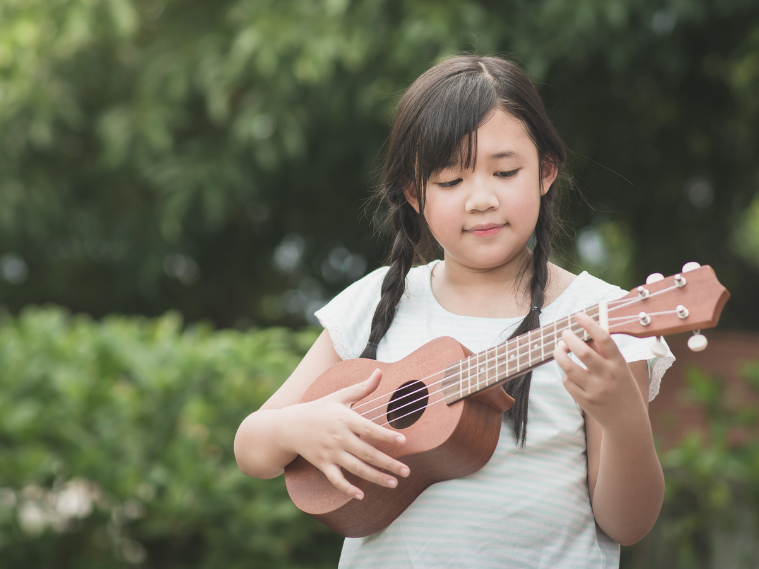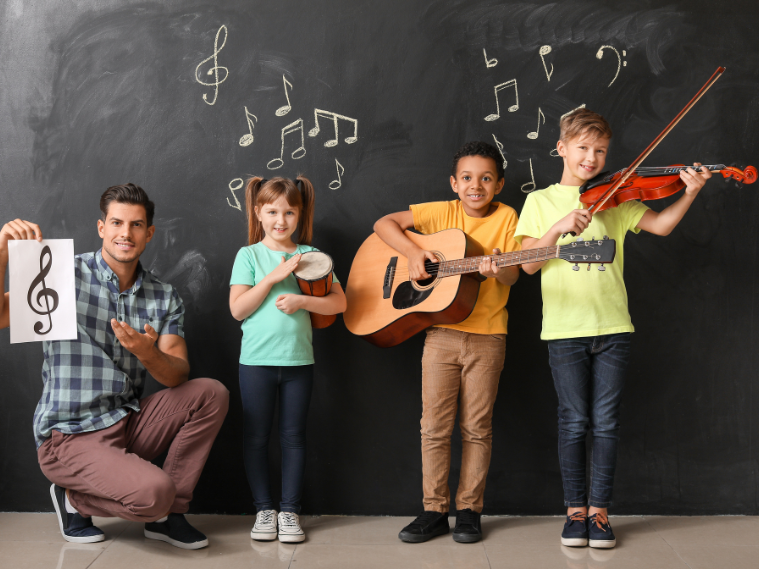Looking for classes nearby for your kids? This comprehensive guide is designed to help parents navigate options, select the right lessons, and find qualified teachers who will inspire a lifelong love of music. Beyond just learning notes, piano classes nurture creativity, build confidence, and enhance cognitive skills — setting your child up for success both in music and beyond.
Finding the Best Piano Classes for Your Child
Enrolling your child in piano lessons is an investment in their creativity, discipline, and self-expression. Beyond learning notes and rhythms, children build confidence and focus that support their growth in many areas of life. With the right teacher and environment, piano lessons can spark a lifelong love of music.
Why Parents Choose Local Piano Schools and Qualified Piano Teachers
Parents searching for “piano classes near me” often choose local schools with certified teachers because research shows students taught by qualified instructors develop better skills and higher confidence. Certified piano teachers bring specialized training that improves learning outcomes and keeps kids motivated. Plus, local schools offer convenience and build community support, which benefits a child’s commitment to lessons.
Benefits of Group vs Private Piano Lessons in Your Area
When choosing piano lessons, parents often wonder whether group or private classes are the better fit. Each option offers unique benefits that can support a child’s growth both musically and personally. Understanding the differences can help families select the right path—or even combine both—for the best learning experience.
- Group Lessons – Piano classes with multiple students learning together. These lessons encourage social skill development, teamwork, and peer motivation while being more budget friendly.
- Private Lessons – One-on-one instruction tailored to a student’s pace and goals. Private lessons provide faster, more personalized skill-building and focused attention from the teacher.
- Combination Approach – A mix of group and private lessons. Many families choose this option to balance the social benefits of group learning with the individualized support of private instruction.
Piano Lessons for Kids’ Brain Development and Creativity
Piano training is more than just learning music—it plays a powerful role in shaping children’s brains and personalities. From boosting academic performance to enhancing creativity, piano lessons give young learners skills that last a lifetime. Below are some of the most valuable benefits every parent should know.
Piano Training for Cognitive Growth
Piano training strengthens both memory and focus by engaging multiple areas of the brain. Reading sheet music supports math and reading skills, while problem-solving during practice builds logical thinking. Together, these benefits help children perform better academically.
Piano Lessons for Discipline and Perseverance
Piano lessons teach children the value of patience, consistency, and commitment. Regular practice builds strong habits, while milestones like recitals encourage goal setting. These skills help kids develop time management and perseverance.
Piano Exercises for Confidence and Self-Expression
Piano exercises boost self-esteem by giving children opportunities to perform and express themselves creatively. Mastering a piece or playing at a recital helps reduce stage fright and build pride. Music also allows kids to channel their emotions in healthy ways.
Piano Lessons for Social and Emotional Development
Piano lessons encourage teamwork and communication, especially in group settings. Children learn to collaborate, listen, and support their peers while developing emotional awareness through music. These experiences often lead to lasting friendships and greater confidence.
How to Choose the Right Piano School Near You
Finding the right piano school can make all the difference in your child’s musical journey. By considering teacher credentials, lesson formats, and practical factors, parents can ensure a positive and effective learning experience.
Evaluating Teacher Credentials and Teaching Styles for Kids’ Piano Lessons
Choose qualified instructors with experience teaching children. Trial lessons and reviews can help you see if the teacher’s style fits your child’s needs.
Comparing In-Person vs. Online Piano Classes for Flexible Learning
In-person lessons offer hands-on guidance, while online lessons provide convenience and wider access to teachers. Families can explore options like Learn the Arts Online Music Classes for flexibility.
Considering Costs, Schedules, and Location for Practical Fit
Review tuition, schedules, and location to make lessons manageable for your family. A school that fits your routine ensures consistent progress.
What to Expect in Your Child’s First Piano Lesson
Starting piano lessons is an exciting milestone for children, and the first class sets the tone for their musical journey. Parents can expect a gentle, engaging introduction that builds confidence while laying a solid foundation for future growth. The focus is on making music fun, approachable, and inspiring from day one.
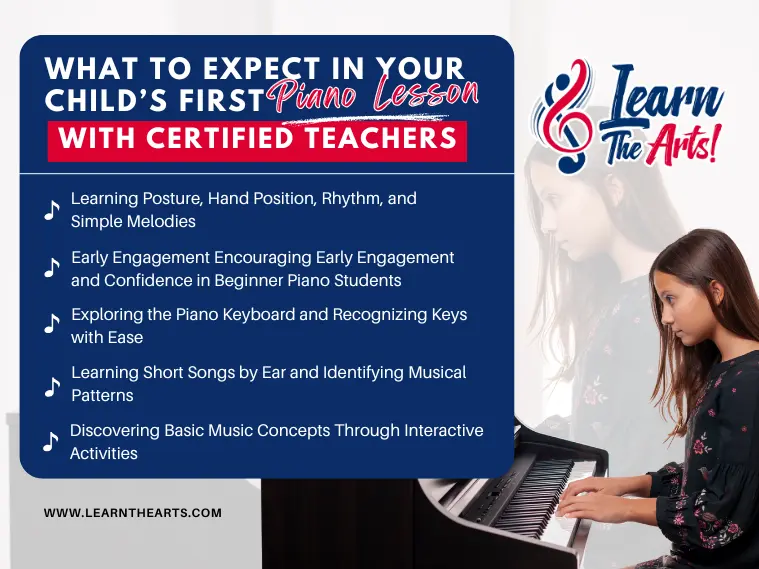
Learning Posture, Hand Position, Rhythm, and Simple Melodies
During the first lesson, children are shown how to sit correctly at the piano and position their hands comfortably on the keys. They practice basic rhythm through clapping or tapping exercises before trying simple melodies that are easy to follow. These early skills create a strong foundation and help build confidence in young learners.
Early Engagement Encouraging Early Engagement and Confidence in Beginner Piano Students
Instructors focus on creating a warm and welcoming environment where children feel at ease. Through fun activities, praise, and gentle guidance, teachers build confidence while helping students enjoy their first musical experience. This supportive start ensures that children associate piano lessons with positivity and excitement.
Exploring the Piano Keyboard and Recognizing Keys with Ease
Children are guided through the layout of the piano, learning to identify black and white key groups and noticing the patterns they form. This hands-on exploration helps them become familiar with the instrument’s structure, making it less overwhelming. As they grow comfortable, curiosity leads to a deeper connection with the piano.
Learning Short Songs by Ear and Identifying Musical Patterns
Young beginners are introduced to simple, recognizable tunes they can play by ear. This approach develops listening skills, memory, and pattern recognition while giving them a sense of accomplishment. Playing short songs early on also sparks motivation to continue learning.
Discovering Basic Music Concepts Through Interactive Activities
Teachers introduce foundational music theory such as the musical alphabet, note names, and simple rhythms in a playful way. Games, clapping exercises, and interactive tools keep children engaged and make learning feel like fun rather than work. These activities build both knowledge and enthusiasm for future lessons.
Supporting Your Child’s Piano Practice at Home: Essential Tips for Parents
Learning the piano is a rewarding journey, but progress doesn’t just happen during lessons—it continues at home through regular practice. As a parent, you play a key role in creating an environment that makes practice enjoyable and productive. By guiding your child with patience and support, you can help them build skills while fostering a genuine love for music.
Setting Practice Schedules, Using Fun Techniques, and Encouraging Progress
Helping your child stay motivated at the piano takes consistency, creativity, and encouragement. With the right approach, practice can feel less like a chore and more like an exciting part of their daily routine. Here are some simple yet effective ways to keep your child engaged and progressing:
- Keep practice sessions short, about 15 minutes a day.
- Use playful rewards and games to maintain interest.
- Celebrate every small achievement.
Exploring Different Piano Music Genres to Inspire Young Learners
Introducing children to a variety of music styles—such as classical, jazz, and pop—keeps their learning fresh and exciting. Exposure to different genres not only sparks curiosity but also helps them discover what type of music resonates with their personality. Families can make this exploration fun by listening together and encouraging kids to try playing songs they already enjoy.
Final Thoughts
Choosing the right piano school can shape your child’s musical journey in lasting ways. At Learn the Arts, our passionate instructors use a child-centered approach that makes lessons enjoyable, confidence-building, and tailored to each student’s needs.
Ready to begin your search for piano classes near you? Explore piano lessons at Learn the Arts today and give your child the gift of music. Book a lesson now to start their rewarding musical journey!
Frequently Asked Questions
1. When should my child start piano lessons?
Most children are ready to begin piano lessons between the ages of 5 and 7, when they can focus, follow instructions, and have developed fine motor skills. However, every child is different, so interest and enthusiasm are also key signs of readiness.
2. Are online piano lessons effective?
Yes, online piano lessons can be just as effective as in-person classes when led by qualified instructors. They provide flexibility for busy families, access to excellent teachers worldwide, and the convenience of learning from home.
3. What’s the cost of piano lessons?
The cost of piano lessons varies depending on the teacher’s experience, location, and whether the lessons are private or in a group setting. Group lessons are generally more affordable, while private sessions offer more personalized instruction.
4. How do I choose the right piano teacher?
Look for a teacher with solid qualifications, experience working with children, and a teaching style that matches your child’s personality. Scheduling a trial lesson is a great way to see if the teacher and student connect well before committing to the long-term.
5. How do I keep my child motivated to practice?
Keep practice sessions engaging by turning them into short, fun routines rather than long drills. Celebrating progress with praise or small rewards helps children stay excited about learning and builds their confidence over time.
